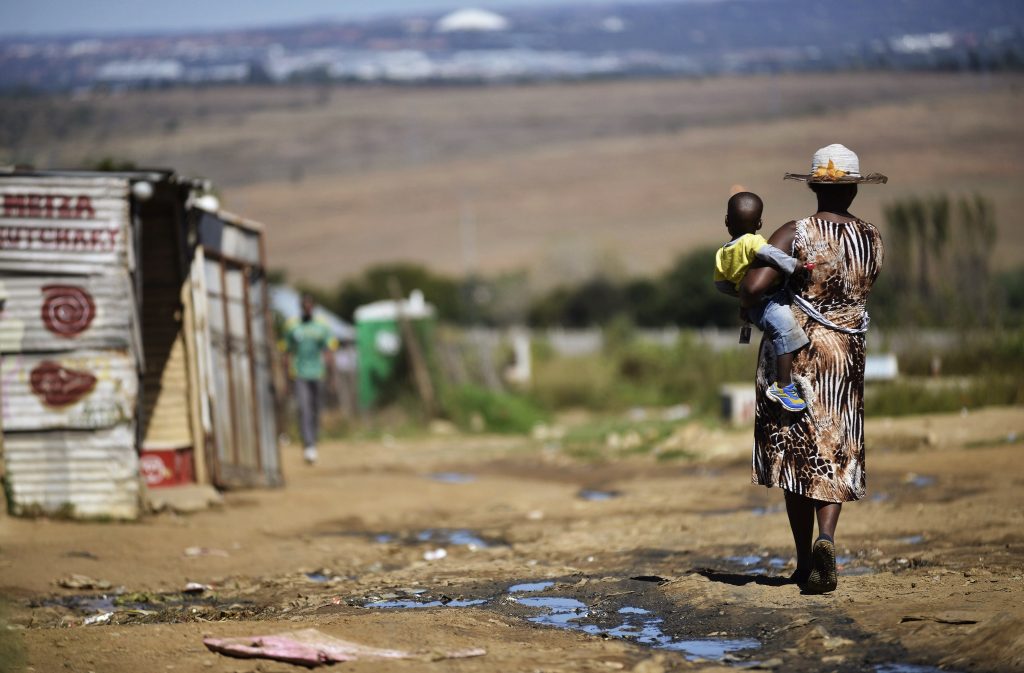This Women’s Day, Amnesty International South Africa is calling on the government to prioritise improving access to basic services.
Women and girls are most severely affected by service delivery failures especially when it comes to issues of water and sanitation. Some 14.1 million people still do not have access to safe sanitation and over 3 million people do not have access to a basic water supply service.
South African courts have recognised that the right to water and sanitation is crucial to end inequality and poverty, and to improve and protect other rights, such as the rights to health and education.
“Women and girls bear the brunt of poor access to service delivery, poverty and inequality. Many of them do not have access to running water and toilets in their homes, and are often afraid to go to outside toilets at night for fear of their safety, especially in a country with high incidents of gender-based violence”, Amnesty International South Africa Executive Director Shenilla Mohamed said.
“Children, especially girls, are more likely to drop out of school if there are no adequate and safe toilet facilities.”
“The lack of access to water and sanitation also creates heightened health risks. Not only does the lack thereof promote the spread of preventable diseases amongst the general population and result in an increased use of hospitals and clinics, but women and girls face additional health threats given their menstrual hygiene needs. ”
“Violations of the right to water and sanitation lead to the violation of other rights, including safety, education, health and dignity. Access to essential services is paramount in upholding human rights and protecting people,” Mohamed said.
“We celebrate Women’s Day to commemorate the 20,000 women who marched to the Union Buildings in 1956 to protest against repressive apartheid laws. It cannot be that 65 years after these women took to the streets to demand their rights, South African women are still having to fight for their rights to be protected,” Mohamed said.
“It is also unacceptable that it’s only in the month of August that we put more emphasis on the rights of women because we celebrate Women’s Day. This needs to be a year-round priority.
“The government needs to fix this now, not only to honour the women in history who stood up for what is right, but for the millions of women and girls whose rights are continuously being violated with each passing day where little to nothing is being done to improve their access to these essential and basic services” said Mohamed.
Amnesty International South Africa’s #DignityNow campaign calls on the Department of Cooperative Governance and Traditional Affairs to ensure that all municipalities fulfil their constitutional mandate to provide basic services to everyone in South Africa by prioritising:
Accountability: To commitments made at all levels of local government to ensure the equitable delivery of basic services. This includes monitoring the progress of municipalities in reaching service delivery goals by being responsive to the needs of communities and individuals, creating opportunities for active community participation and providing services in a timely, progressive and sustainable manner.
Transparency: To ensure there is accountability for the abuse of power and the mismanagement of public funds at all levels of local government during the pandemic and going forward. This includes prioritising reforms that improve financial management systems; hiring skilled personnel; ending impunity for crimes of corruption; promoting good governance and access to information, particularly when it comes to decision making.
Access to information: To ensure that municipalities adhere to the legal requirement to consult with communities and provide information and feedback on budget and plans. This includes running robust awareness campaigns on accessible platforms that promote the active participation of communities and individuals.
Take action here and call on the South African government to give people #DignityNow.
Background
In August 1956, approximately 20,000 women marched to the Union Buildings in Pretoria to protest against apartheid “pass laws” which restricted the movement of black people under the Population Registration Act. The Act required them to carry passports, known as a pass, to move within the country, and served to entrench and maintain racial segregation.
For more information or to request an interview, please contact:
Genevieve Quintal, Media and Communications Officer, Amnesty International South Africa: +27 (0)64 890 9224; genevieve.quintal@amnesty.org.za
Public Document
****************************************
Amnesty International South Africa office, 97 Oxford Road, Saxonwold, Johannesburg, 2196
press@amnesty.org


